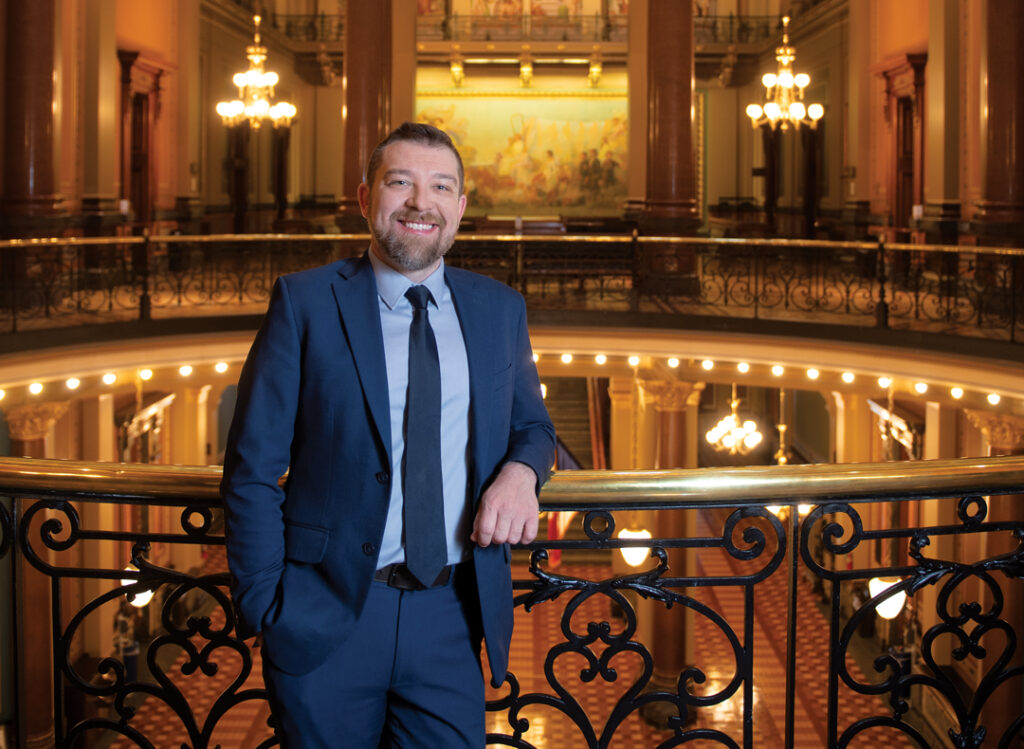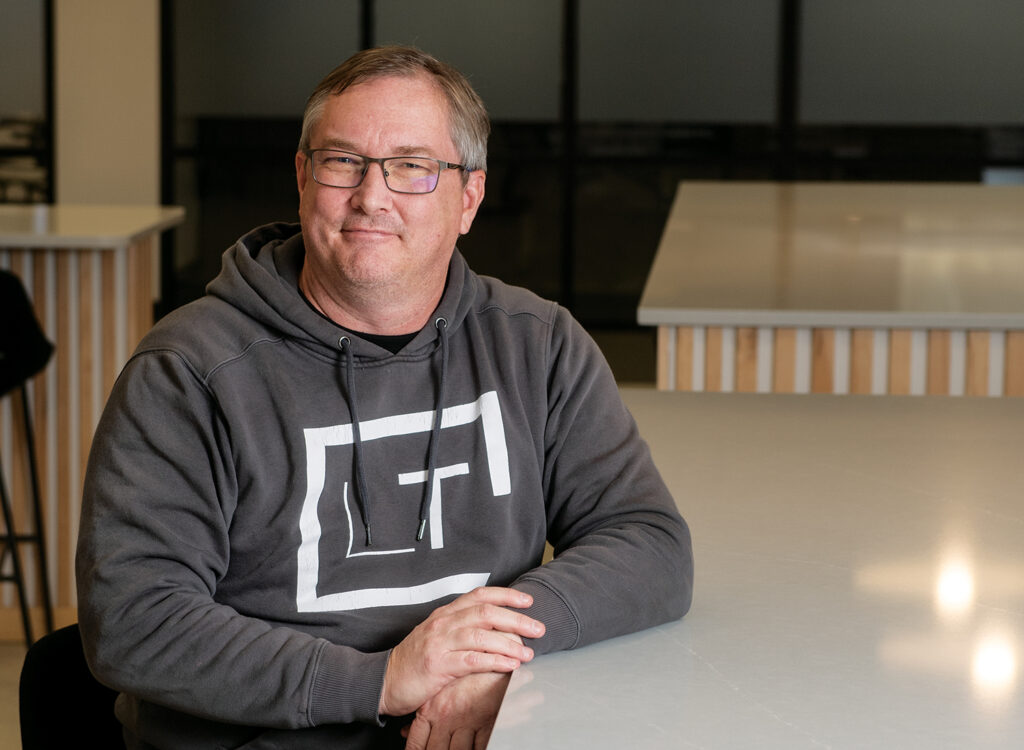A Closer Look: Ingrid Gronstal Anderson
Water program director, Iowa Environmental Council

Ingrid Gronstal Anderson has worked on water issues for years, including as an environmental compliance worker at the University of Iowa. Much of her work involved making sure the university complied with major environmental regulations and laws.
Over the years, she also worked on projects that turn tall grasses into energy, when she wasn’t outdoors just trying to enjoy the environment she protects.
Gronstal Anderson had considered working at the Iowa Environmental Council before predecessor Cindy Lane moved to Denver. Gronstal Anderson jumped at the chance to apply for the water program director position when it opened.
The council is a coalition, representing major environmental organizations and individuals on water quality, energy and other issues. The organization, formed in 1995, was the brainchild of a group of people that included banker Buz Brenton.
To answer your question, yes, Gronstal Anderson is related to the more famous Gronstals. Former Iowa Banking Superintendent Tom Gronstal is her father, and former legislative leader Mike Gronstal is a cousin.
We asked Gronstal Anderson about her new position, which she took in April.
What appealed to you about the water program director job?
Well, I think this is really a sort of a dream job for me in a way. I’ve always been interested in environmental issues and environmental law. When I was an undergrad, I took classes at [Iowa Lakeside Laboratory along West Okoboji Lake] and they were some of my favorite classes. My family’s always had a place on the shore of Spirit Lake. I grew up swimming in the lake, playing in the lake and boating. Water is probably my favorite medium.
I knew when I went to law school that I wanted to work in environmental law and policy. Getting to do that in my home state was also really an attractive opportunity for me.
What do you expect from this job? What will you be working on?
I see my job as being in three areas. First is education and outreach. So getting out of Des Moines and going around to different areas and finding out how water quality affects different parts of the state [is important]. This summer we made a pretty big effort to speak to people in the recreational lake communities, like Clear Lake and Okoboji. We met with environmental leaders, business leaders and tourism leaders. I spoke to Rotary Clubs about water quality and about what we do.
We view ourselves as the voice of Iowans, and so a big part of that is to be able to go out and actually learn from Iowans and the message that we can take from them and actually amplify their voices across the state.
This will be my first legislative session. We work with our coalition members and have a weekly water roundtable for members and supporters. We track legislation. And we try to set legislative priorities.
The third piece is strategic litigation when necessary, but our effort is to collaborate with people as much as possible. Part of our ability to negotiate is to say, “Well, if you don’t do what the law requires, and if we can’t resolve it here, we may have to resolve it in the court system.”
Do you have any general goals for your new job?
Well, our main concern continues to be nutrient pollution, and the various ways that becomes problematic in the state. So one area we’re looking at is private well contamination. So, back in April, we issued a report with Environmental Working Group looking at private well testing across the state. And the first takeaway from that report is a lot of private wells aren’t being tested. They’re not regulated the same way that like a public drinking water supply is tested. So there’s a lot of people who don’t know what’s in those private wells. Of the wells that were tested, a significant portion came back as high in nitrate [which has been associated with cancer and other illnesses].
In the lake areas, businesses have eight or 10 weeks a year to make their money. If you have swimming advisories for two of those weeks, what does that do to the bottom line of those coffee shops and restaurants and resorts in those areas?
You know, I think we get told the bottom line of agribusiness takes precedence in the state. But I think there are other economic interests that need to be appropriately balanced when we talk about policies surrounding water quality. So there’s other economic drivers related to nutrient pollution and waterways. And I think right now, there’s just an imbalance in how those are weighed. So we’re looking at how do you actually balance all of Iowans’ interests in these natural resources?
The challenge with working with ag groups is they are so influential and so well-resourced in the state. What is their motivation for coming to the table and talking about any sort of change from the status quo? It’s incumbent upon us to say there are real problems in this state. And there are ways in which we all need to come together and find solutions to those problems.
What we’re trying to highlight is, hey, you have communities with small businesses who rely on these waterways. Or you have people in your rural communities whose wells are contaminated. These are people within your communities with whom we should work to fix these issues. We should take the solutions to those problems seriously.
Are these debates still being colored by the Des Moines Water Works’ federal lawsuit against drainage districts that was thrown out of court but caused some hard feelings?
To a degree. But I think that the lawsuit served to bring this issue to the forefront of people’s minds. People get nervous about litigation, and especially in a community-oriented state, like Iowa, the concept of suing someone within your state can be sort of alarming to people. But I think that is something where, you know, they got to a point where we have to get some attention on this somehow. The courts can serve as a venue within which to resolve disputes.
Will that lawsuit fallout hurt your efforts?
I think it depends who you are talking to.
How are you wired?
I am a good communicator. I’m good at building relationships. I like to think that I am fairly genuine. I don’t play games. I try not to be disingenuous with the things I say. I try to have a reputation for being on the level with people. When I work with them, I like to not take myself too terribly seriously. Because I’m just a goof.
I thought the first day of law school would have taken your humor away …
My lawyer friends are some of the funniest people I know. But it’s a dark kind of humor.
What do you like to do in your spare time?
I like to get outside as much as possible. I do a lot of cycling racing on the roads and cyclocross on trails. I like to read, a little bit of everything.








